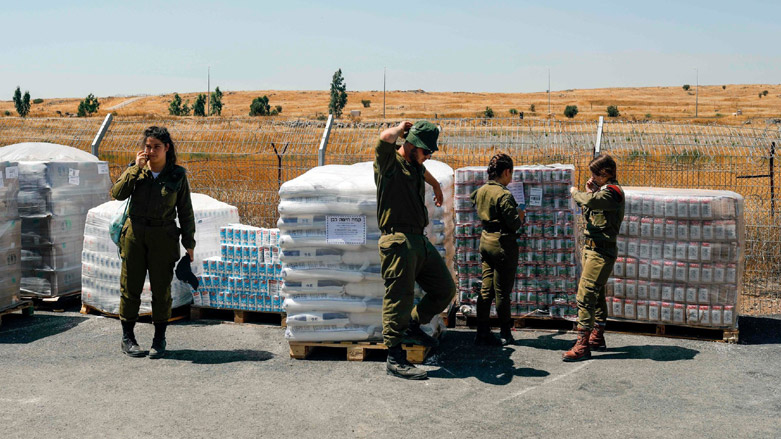Israel reveals humanitarian aid program for Syrians

WASHINGTON DC, United States (Kurdistan 24) – For the past four years, Israel has been providing humanitarian assistance to civilians along its frontier with Syria on the Golan Heights, Israeli officials revealed earlier this week.
The program began in 2013, when a wounded Syrian approached an Israeli army post, seeking medical attention.
“Back then, there was no policy” on how to respond to such a situation, a spokesman for the Israeli Defense Forces (IDF) explained.
It was “just a commander’s on-the-spot decision to provide care for an injured civilian,” the spokesman added.
Israel has since developed a program in which some 4,000 Syrians have received medical treatment.
That assistance was also extended to cover other necessities, including food, fuel, generators, clothing, and even a few mules.
In 2016, three years after the program began, Israel expanded it, dubbing it “Operation Good Neighbor.” Over the past 18 months, some 360 tons of food aid has been sent to Syria.
Most of the humanitarian aid comes from nongovernmental organizations (NGO), Israeli as well as foreign. But, the Israeli government provides the medical care, which now focuses on helping children.
Once a week, children and their mothers are picked up at the frontier, where they are given breakfast, before being taken by bus to Israel. Food is available in southern Syria, but shortages can make it expensive.
“Operation Good Neighbor” aims to establish friendly relations with the villages neighboring Israel and encourage their residents to keep radical elements away from Israel.
The Multifaith Alliance for Syrian Refugees is one NGO involved in the Israeli effort. Based in New York, it was founded by a refugee to America, who is the daughter of Holocaust survivors.
The organization’s director of humanitarian relief and regional relations is a Syrian, Shadi Martini, who ran a hospital in Aleppo, before coming to the US.
Martini recently told The New York Times that when he first learned about Israel’s support for Syrian civilians, “It was a very big shock to me. Syrians were brought up to fear Israelis as the devil who wants to kill us and take our land.” Since settling in the US, Martini has visited Israel five times.
Similarly, a Syrian woman who received Israeli medical treatment told The Times of Israel, “They teach us that Israel is the country that hates us the most.” But, “we came and saw with our own eyes what [Israelis] are giving us here.”
The area covered by “Operation Good Neighbor” falls within the “de-escalation zone” in southern Syria, agreed upon earlier this month by the US and Russia.
Who will enforce the ceasefire in that area remains unclear, and Israeli Prime Minister Benjamin Netanyahu announced his opposition to the US-Russian agreement last Sunday, while on a visit to Paris.
The “de-escalation zone” also borders Jordan.
According to The New York Times, Jordan was promised that pro-Iranian Shia militias would not be allowed within 40 kilometers of its border. However, Israel received no such guarantee.
Israel hopes the agreement will be modified to provide it the same assurances that Jordan has received.
Editing by Karzan Sulaivany
